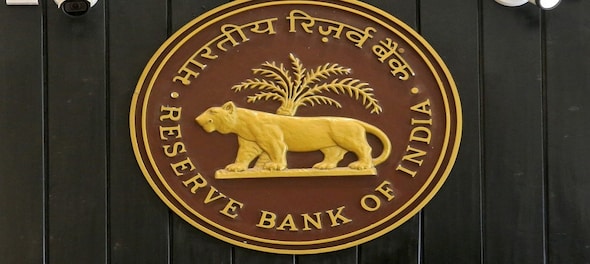
The Reserve Bank of India (RBI) on Monday approved a transfer of Rs 1.76 lakh crores surplus to the government as dividend, the highest ever dividend doled out by the central bank in its history.
In a press release, the RBI said, “The Central Board of the Reserve Bank of India (RBI) today decided to transfer a sum of Rs 1,76,051 crore to the Government comprising of Rs 1,23,414 crore of surplus for the year 2018-19 and Rs 52,637 crore of excess provisions identified as per the revised Economic Capital Framework (ECF) adopted at the meeting of the Central Board today.”
Most analysts expect the funds will mainly be used to offset weak tax collections, but risks of a fiscal slippage remain.
Morgan Stanley believes that the surplus will support the fiscal flexibility but a big fiscal stimulus is still a low-probability event. The government is likely to continue a calibrated response, noted the brokerage, adding that it awaits the government's follow-up measures.
According to BofAML, the RBI surplus will most likely be used to fund the Rs 70,000 crore recapitalization of PSU banks announced by finance minister Nirmala Sitharaman on Friday, meanwhile, the balance will likely be transferred to help the fiscal deficit.
RBI surplus has, in the recent years, been an issue that drove a wedge between the government and the central bank. In fact, during former governor Raghuram Rajan and Urjit Patel's tenures, the central bank had opposed the plans of use of RBI surplus reserves by the government saying the funds should not be used to bridge the centre's fiscal deficit. The disagreements had also led to Patel's premature exit in 2018.
Rajan, in 2016, had warned against using RBI surplus for the recapitalisation of public sector lenders, saying 'there is no free lunch'.
"A fundamental lesson in economics is there is no free lunch. This can be seen in the matter of the RBI dividend: Some commentators seem to suggest that public sector banks could be recapitalised entirely if only the RBI paid a larger dividend to the government. Let me explain why matters are not so simple," he had said.
Explaining the entire ecosystem of earning surplus by the RBI, he said, the central bank earns income out of government assets and printing of currency as well as issuance of deposits to commercial banks.
"Much of the surplus we make comes from the interest we get on government assets or from the capital gains we make off other market participants. When we pay this to the government as dividends, we are putting back into the system the money we made from it - there is no additional money printing or reserve creation involved," he explained.
"But when we pay a special dividend to the government, we have to create additional permanent reserves, or more colloquially, print money," Rajan added.
Under Patel's tenure, the government and the RBI fought for weeks over how much autonomy the central bank should have as the administration of Prime Minister Narendra Modi sought to reduce curbs on lending and to gain access to the RBI's surplus reserves. While the centre accused the RBI of sitting with ‘surplus reserves’, the central bank, arguing against it, said that the excess reserves were required to manage exchange rate risks.
The public spat between the two escalated, leading to Patel resigning from his post on Dec 18, 2018. He, however, cited personal reasons for the same.
"On account of personal reasons, I have decided to step down from my current position effective immediately," Patel had said in a statement.
However, the spat between the central bank and the government was made public by Viral Acharya, who served as deputy governor under Urjit Patel. Last year, Acharya presented a controversial speech against the government where he batted for the central bank's autonomy. He urged in his speech that the RBI needs to be independent to improve the macroeconomic stability and the policies need to be rule-based.
His comments came after the government's constant ask of the RBI to ease lending restrictions on 11 public sectors banks and give access to the RBI's surplus reserves.
(With inputs from agencies)
First Published: Aug 27, 2019 2:23 PM IST
Check out our in-depth Market Coverage, Business News & get real-time Stock Market Updates on CNBC-TV18. Also, Watch our channels CNBC-TV18, CNBC Awaaz and CNBC Bajar Live on-the-go!


Lok Sabha elections 2024: 28% of candidates contesting in fourth phase are 'crorepatis'
May 9, 2024 4:29 PM
Free poha-jalebi to movie ticket discounts: How cities struggling with 'urban apathy' are luring voters to polling booths
May 9, 2024 3:17 PM

